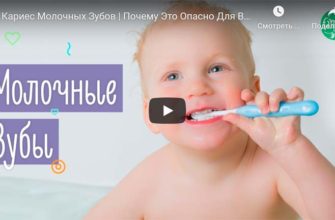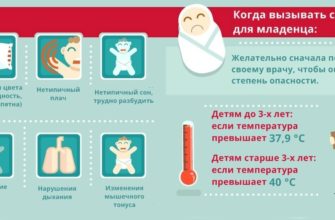These and other questions are answered by the doctor of medical sciences, professor, pediatrician, allergist and immunologist Tamara Kosenkova.

- Why do young children often get ARVI?
- The main causative agents of acute respiratory infections in children are viruses. More than a few hundred of these viruses are currently known. The tendency of young children to frequent colds is due to several factors.
First, viruses are transmitted by contact and by airborne droplets. Therefore, the probability of infection with them is very high. This is especially true for children attending kindergartens and schools.
Secondly, the child’s immune system is characterized by immaturity of defense mechanisms, including antiviral.
And finally, some viruses change and become resistant to a number of drugs.
- If the child is still ill, how should ARVI be treated correctly?
- According to modern clinical recommendations, in the treatment of acute respiratory viral infections in children, etiopathogenetic (aimed at eliminating the causes of the disease and affecting the development of the inflammatory process) and symptomatic (aimed at alleviating the symptoms) drugs are used. Among the drugs of the first group, one can separately distinguish anti-influenza drugs, which include Tamiflu, Relenza, Arbidol. These medicines should only be used to treat flu. In all other situations (even for flu prevention), they are not recommended.
The main place in the treatment of acute respiratory viral infections in children is occupied by interferons, because they have universal properties: they act on all types of viruses that cause SARS, including influenza, as well as at all stages of the reproduction of viruses on the mucous membrane of the respiratory tract.
Symptomatic drugs include antipyretic, vasoconstrictor drugs, as well as drugs for washing and irrigation of the mucous membrane of the nose and mouth.
- What is interferon?
- Interferons are factors of innate immunity that perform many functions in our body. One of the most important is the protection of the mucous membranes, including the respiratory system, from viruses and bacteria.
- Why are drugs based on interferons used in children with acute respiratory viral infections?
Firstly, not all drugs are approved for use in children, especially young children. Interferons in this case constitute an exception that is happy for us physicians, because they can be used from the first days of a child’s life, and even in deeply premature patients.I already mentioned a wide range of interferon activity. This is also an extremely important argument.
In addition, in newborns and premature infants, in often and long-term sick children, in patients who have suffered a severe infection the day before, a decrease in the ability to synthesize their own interferons can be observed, which makes them unprotected against viruses. A special group consists of patients with respiratory allergies (bronchial asthma, allergic rhinitis, hay fever), which are characterized by low production of interferons in response to the entry of viral infections into the child's body.
Therefore, such patients with layering of acute respiratory viral infections especially need interferon replacement therapy in order to avoid the development of complications, a protracted course of the disease or an exacerbation of allergic pathology.

- What interferon preparations are used in pediatric practice?
- To date, in pediatrics, the most studied, clinically investigated and safe drugs are considered recombinant interferons, the main representative of which is Viferon, produced in the form of suppositories, ointments and gel. It includes interferon type I, vitamins E and C, cocoa butter. Viferon is the only existing recombinant interferon that is approved for use in pregnant women from the 14th week of gestation; in deeply premature (less than 34 weeks of gestation), premature (over 34 weeks of gestation), newborns, as well as children of all ages and adults, both for the purpose of treatment of SARS and prevention. It can be used as an independent tool for the treatment of viral infections, and in combination with other drugs.
The basis of the drug is cocoa butter, which provides not only good absorption of interferons in the rectum, but also has an anti-inflammatory effect. In addition, it has been proven that the best basis for suppositories (rectal or vaginal) is cocoa butter and hard fat derived from palm kernel oil. Only Viferon has a base that meets the above requirements.
- What is the reason for the recent increase in allergic diseases in children?
- The increase in the prevalence of allergic diseases, including drug allergies, is associated with many reasons: the impact of adverse environmental factors; a change in the eating behavior of a modern person and his eating habits, as we began to use a huge number of new products that our body cannot and cannot process correctly; bad habits of parents, etc.
- The health status of a pregnant woman can affect the development of allergies in the unborn baby?
- Of course, the health of the unborn child and the possibility of allergic diseases depend on how the pregnancy proceeds.
A special place among the factors contributing to the onset of allergic diseases is smoking by the mother before and during pregnancy.
Early transfer to mixed or artificial feeding, improper use of infant formula can also cause allergies even in a child who does not have a hereditary burden of allergic diseases.

- How to avoid allergies to drugs?
- In a child prone to allergies or having some kind of allergic disease, drug allergy is more common, however, in healthy children, it is sometimes possible to develop an allergic reaction to individual drugs. The presence and nature of an allergic reaction depends on many factors, including the severity of the course of the viral infection in the child, the allergic reactivity of the patient's body, the composition of the drug, the amount of drugs that are used together and others.At the same time, an undesirable reaction to the drug can appear on any drug, but it is more often noted when various dyes, preservatives, stabilizers, additives or a mixture of herbs are present in the medicine. This should always be considered when prescribing treatment for a child.
In order to avoid the development of drug allergies, you should try to use as few drugs as possible in the treatment of one disease, take them not at the same time, but distribute the dose over time (interval 30-40 minutes or according to the instructions for the drug). Because sometimes even the combined use of long-known drugs can cause an undesirable reaction. In addition, each new drug should be given to the child (especially children with a history of allergic reactions or diseases) in the morning, so that parents have time to evaluate the child’s reaction to the drug, and if allergies develop and provide appropriate assistance. And most importantly, use drugs with the least pronounced allergenic effect and proven clinical efficacy. These drugs include Viferon, which I previously cited as an example.
- What should I do if an allergy does occur?
- If, nevertheless, the child has a drug allergy, it is necessary to consult a doctor and carefully, together with the pediatrician, try to analyze, firstly, the child’s diet. With a decreased appetite against the background of acute respiratory viral infections, parents begin to give the child foods that, when he was healthy, had not been used previously in his diet and which could cause allergies. Secondly, it is necessary to analyze the entire list of drugs that the child receives, the correctness of their use and the possibility of combinations.
If the child has a history of drug allergy, then perhaps the pediatrician will recommend one of the second generation antihistamines, which is approved for use in children and which must be in the first-aid kit of the mother of the patient suffering an allergy.
And most importantly, in case of a child’s illness, acute respiratory viral infections should not be self-medicated, but always consult a doctor to work out with him the tactics of proper treatment of the patient, especially with allergic diseases, in order to avoid the formation of complications and drug allergies.
Doctor of Medical Sciences, Professor Kosenkova Tamara Vasilievna
Doctor pediatrician, allergist and immunologist








